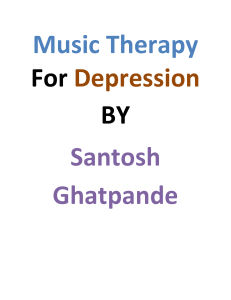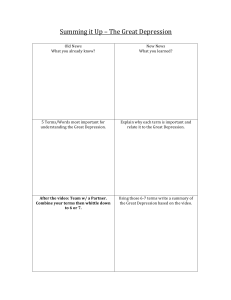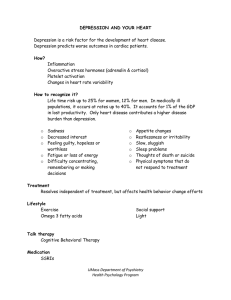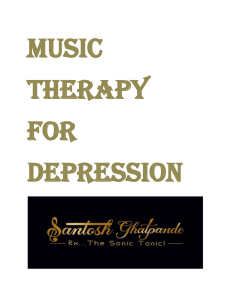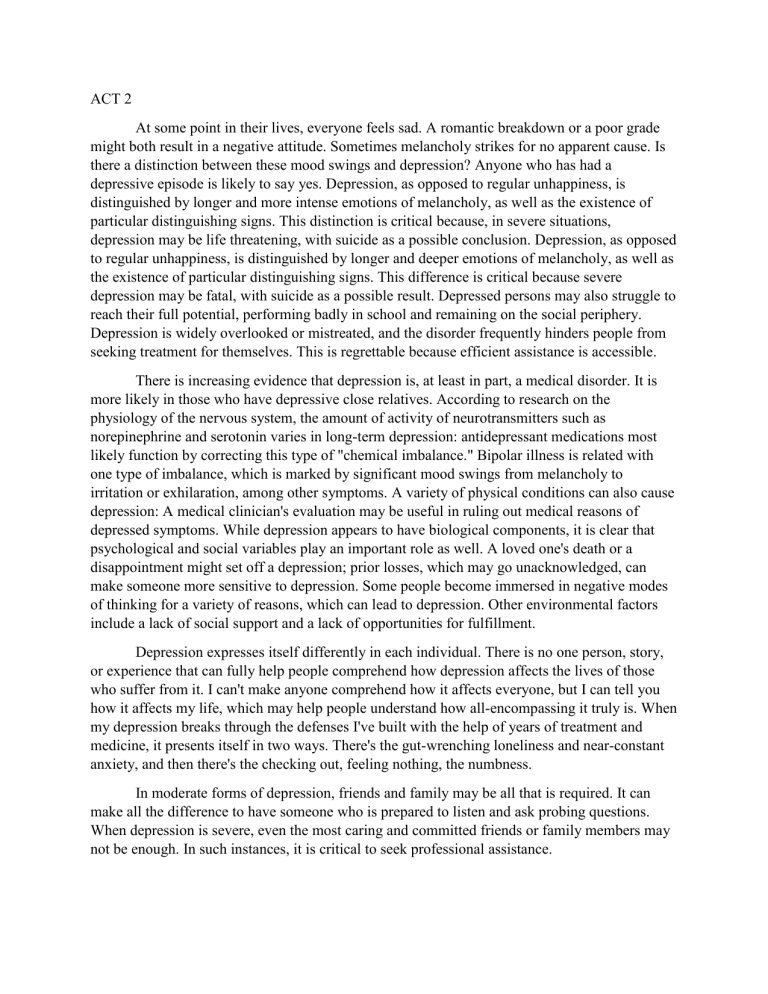
ACT 2 At some point in their lives, everyone feels sad. A romantic breakdown or a poor grade might both result in a negative attitude. Sometimes melancholy strikes for no apparent cause. Is there a distinction between these mood swings and depression? Anyone who has had a depressive episode is likely to say yes. Depression, as opposed to regular unhappiness, is distinguished by longer and more intense emotions of melancholy, as well as the existence of particular distinguishing signs. This distinction is critical because, in severe situations, depression may be life threatening, with suicide as a possible conclusion. Depression, as opposed to regular unhappiness, is distinguished by longer and deeper emotions of melancholy, as well as the existence of particular distinguishing signs. This difference is critical because severe depression may be fatal, with suicide as a possible result. Depressed persons may also struggle to reach their full potential, performing badly in school and remaining on the social periphery. Depression is widely overlooked or mistreated, and the disorder frequently hinders people from seeking treatment for themselves. This is regrettable because efficient assistance is accessible. There is increasing evidence that depression is, at least in part, a medical disorder. It is more likely in those who have depressive close relatives. According to research on the physiology of the nervous system, the amount of activity of neurotransmitters such as norepinephrine and serotonin varies in long-term depression: antidepressant medications most likely function by correcting this type of "chemical imbalance." Bipolar illness is related with one type of imbalance, which is marked by significant mood swings from melancholy to irritation or exhilaration, among other symptoms. A variety of physical conditions can also cause depression: A medical clinician's evaluation may be useful in ruling out medical reasons of depressed symptoms. While depression appears to have biological components, it is clear that psychological and social variables play an important role as well. A loved one's death or a disappointment might set off a depression; prior losses, which may go unacknowledged, can make someone more sensitive to depression. Some people become immersed in negative modes of thinking for a variety of reasons, which can lead to depression. Other environmental factors include a lack of social support and a lack of opportunities for fulfillment. Depression expresses itself differently in each individual. There is no one person, story, or experience that can fully help people comprehend how depression affects the lives of those who suffer from it. I can't make anyone comprehend how it affects everyone, but I can tell you how it affects my life, which may help people understand how all-encompassing it truly is. When my depression breaks through the defenses I've built with the help of years of treatment and medicine, it presents itself in two ways. There's the gut-wrenching loneliness and near-constant anxiety, and then there's the checking out, feeling nothing, the numbness. In moderate forms of depression, friends and family may be all that is required. It can make all the difference to have someone who is prepared to listen and ask probing questions. When depression is severe, even the most caring and committed friends or family members may not be enough. In such instances, it is critical to seek professional assistance.
